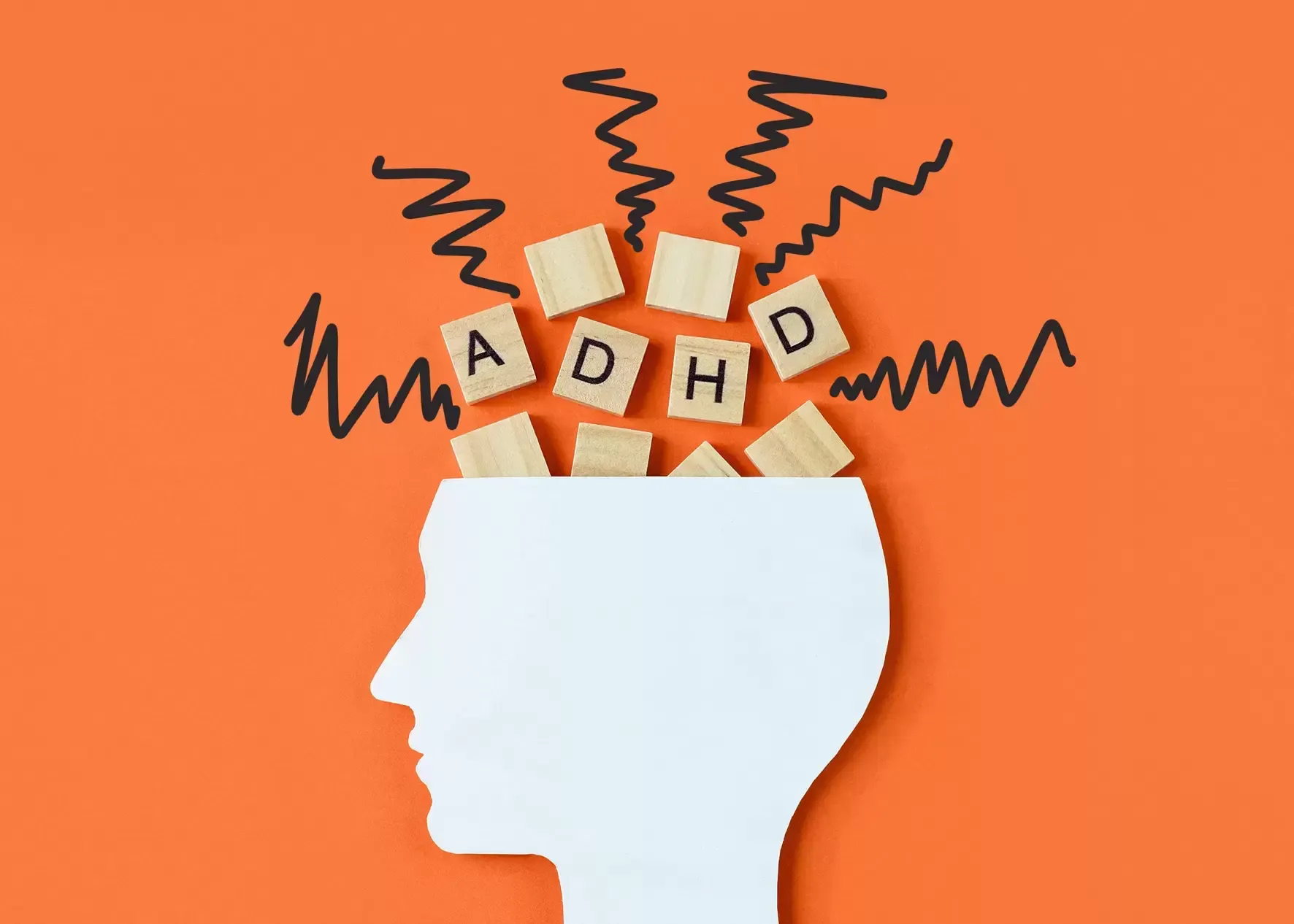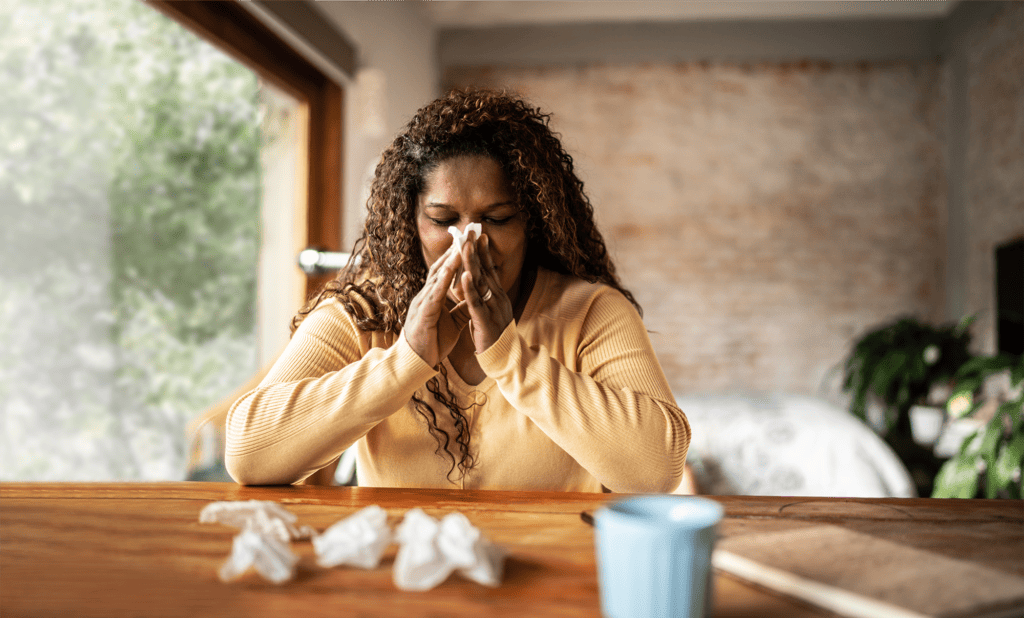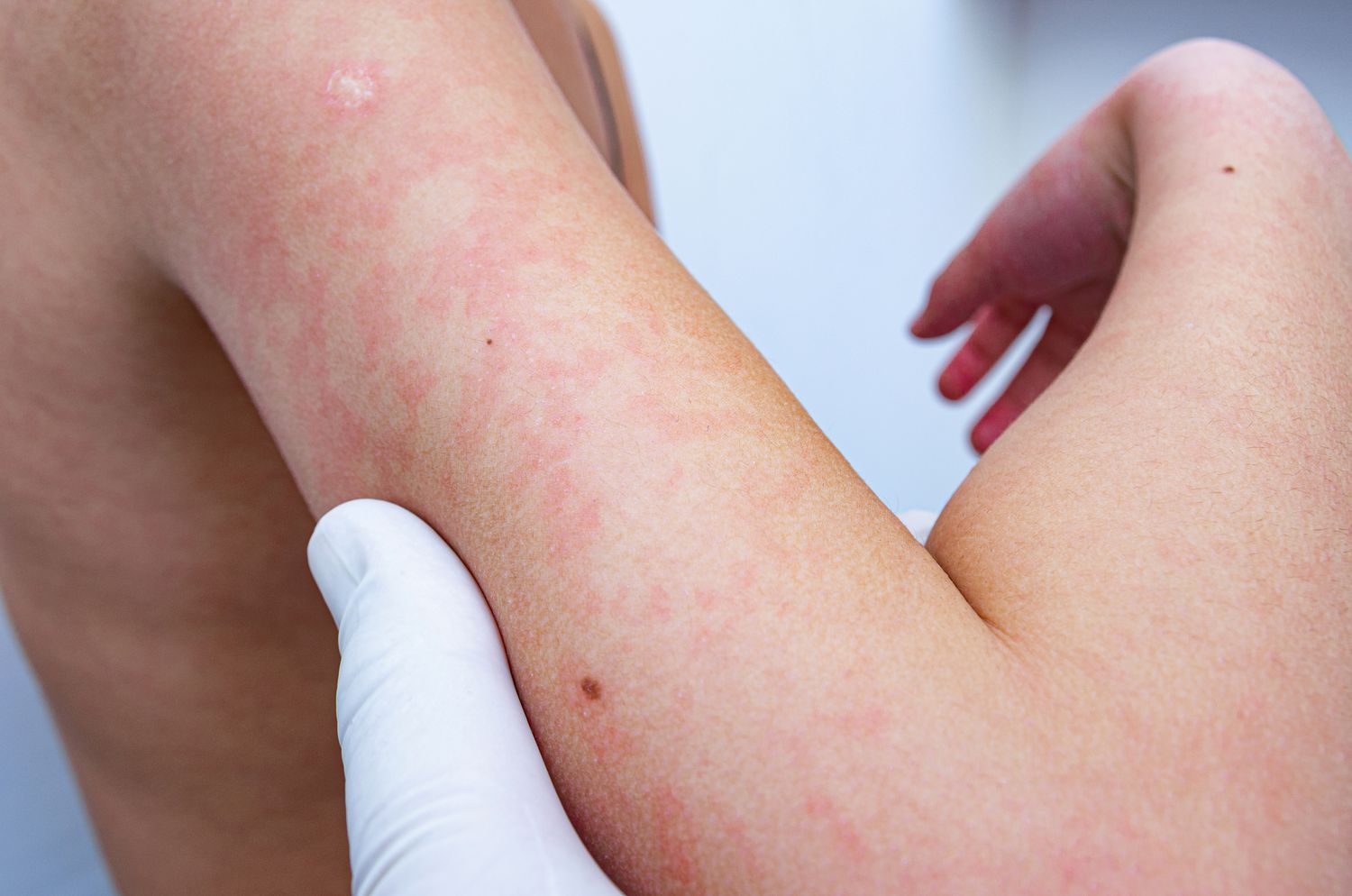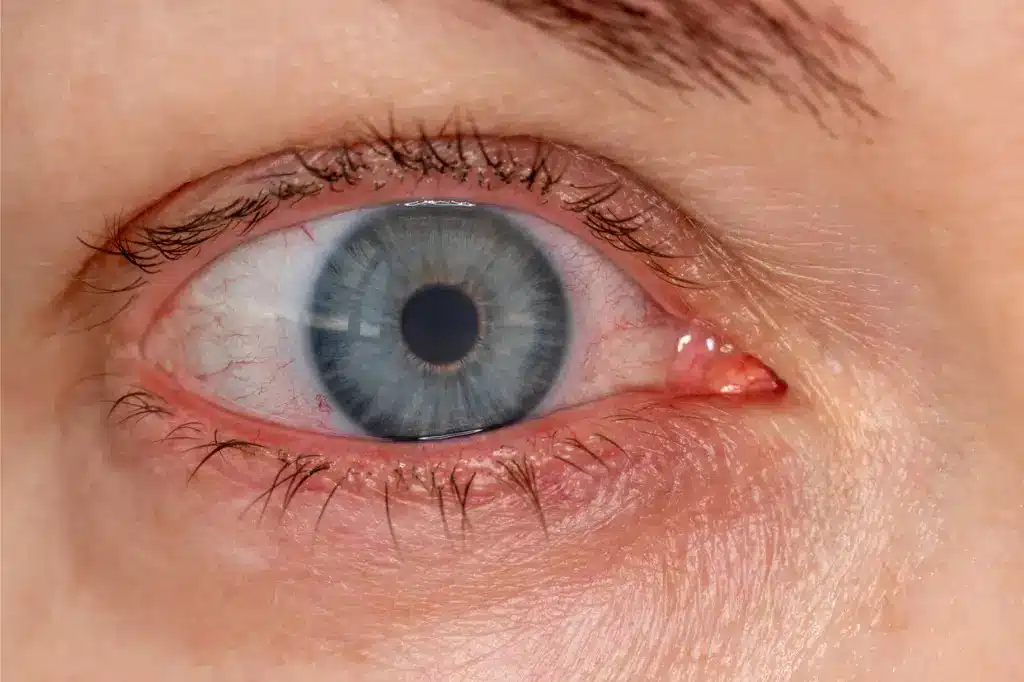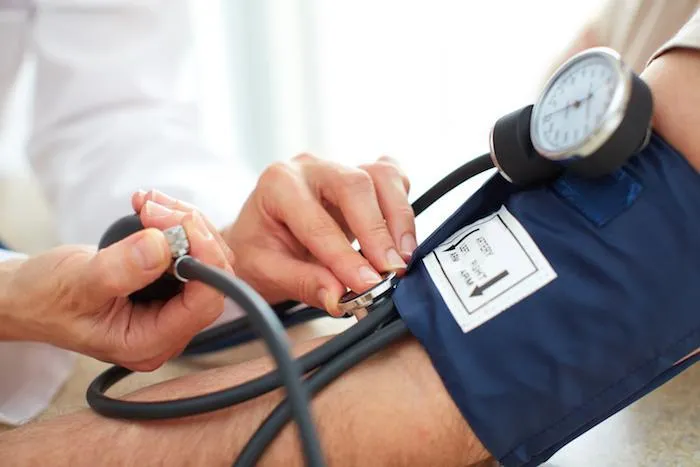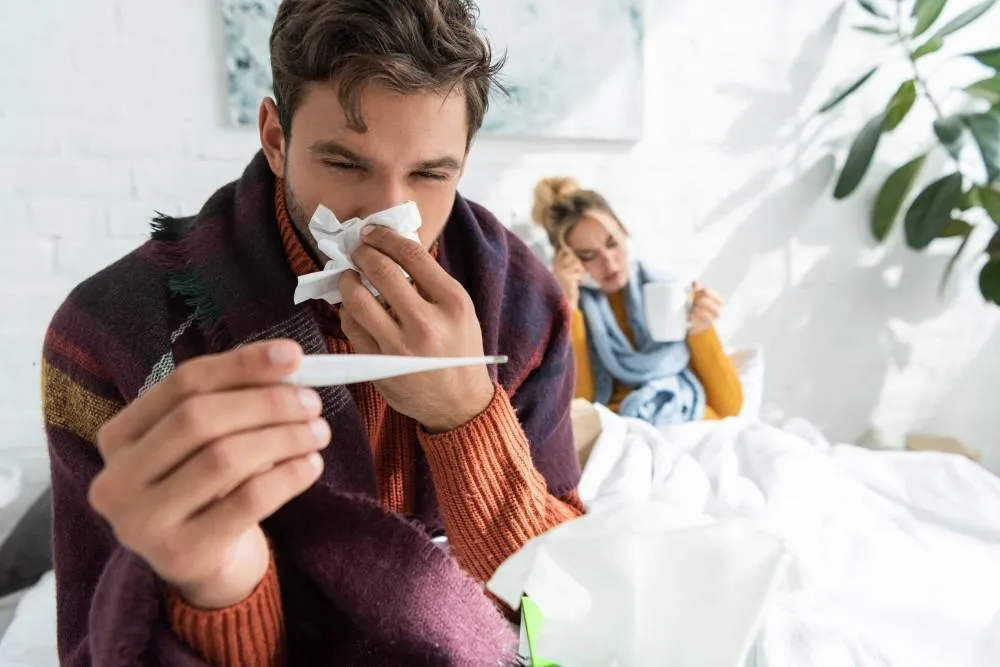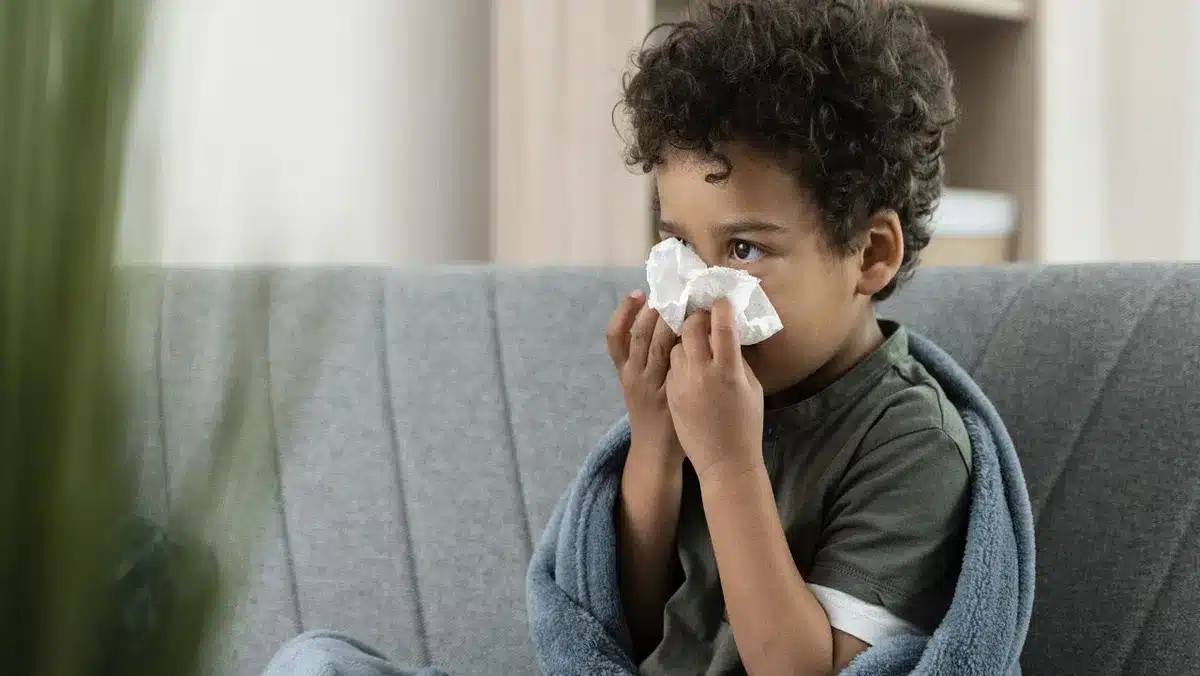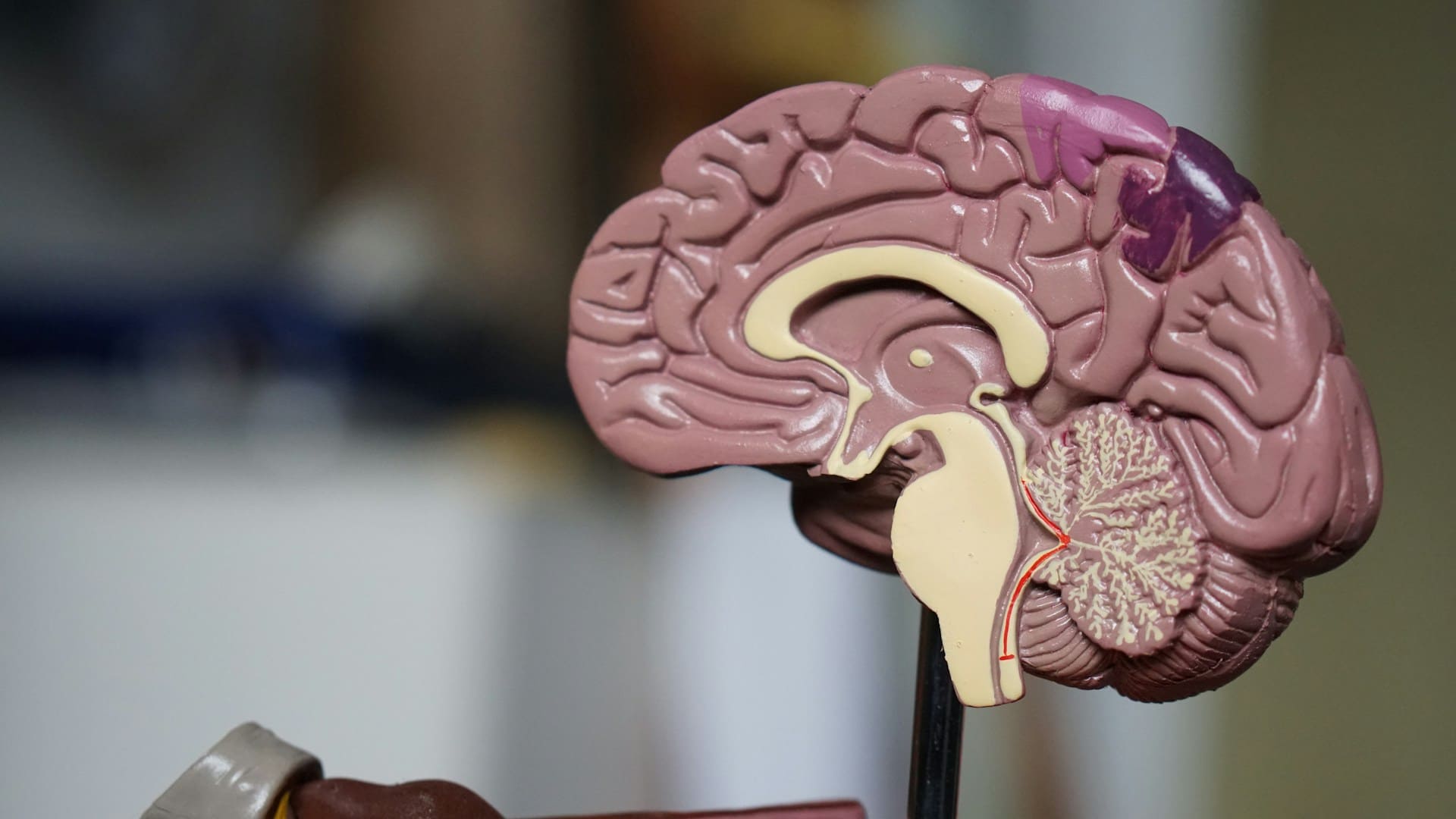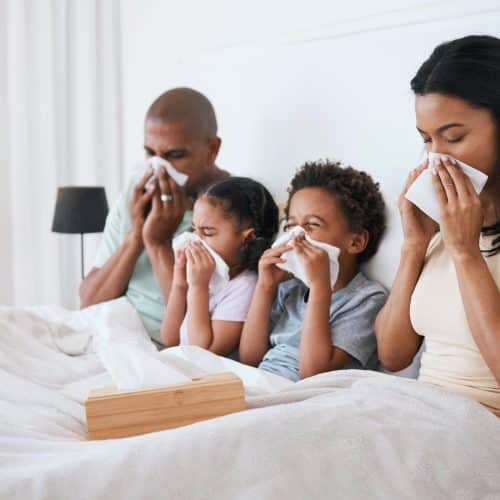How To Deal With Pet Allergies: Tips and Tricks

Pets bring their owners a lot of joy and pleasure, but they can also cause a lot of trouble, so you need to know some pet allergy self-care tips. This is mostly true for people who are allergic to animals. And the allergen can be not only cats and dogs, but also rabbits, parrots, hamsters, guinea pigs and other representatives of fauna.
Pets not only give us companionship – for people with pet allergies, they can be accompanied by frequent bouts of sneezing and wheezing. Pet ownership is a global phenomenon: approximately 65-70% of U.S. families and 76-82% of families in Argentina, Mexico and Brazil have at least one pet. Can you be allergic to cats and not dogs? According to AAFA, allergic reactions to cats and dogs occur in 3 out of 10 Americans, with cat allergies being twice as common as dog allergies.
Our bodies can react differently to things we are used to – food, dust, flowers, perfume. Animal allergies are not just an allergy to pet hair, they are a reaction to the proteins your pet’s body produces. These are in urine, saliva, sweat, and sebum. Protein allergens are easily spread with hair, so it is often said that the Sphynx breed is a hypoallergenic cat. However, this only reduces the zone of distribution of the protein to which the allergy appears but does not cancel the constant contact and cuddling with a new friend.
Some Tips and Tricks for Dealing with Pet Allergies
An allergic reaction to an animal can appear immediately after contact with it, or after a few hours spent together. It is very common for pet allergies to be inherited, so children may react particularly strongly to animals if their parents are allergic. In different ages, allergies manifest themselves almost equally, but in children – brighter.
Some people ask their providers: “I’m allergic to my dog is there anything I can do?” Today there is no vaccine for allergies to cats, dogs and other pets, which would get rid of a person’s reaction when in contact with the irritant. There are various healthy lifestyle advices used to treat pet allergies that alleviate or minimize the symptoms.
Keep Pets Out of Certain Areas
A way to reduce the risk of an allergic reaction is to keep your dog out of certain parts of the house, especially your bed and bedroom. Hardwood floors are easier to clean than carpets. Upholstered furniture also accumulates a lot of dander, so it’s best not to let your dog jump on the couch or let him into rooms with upholstered furniture.
Some animal allergy self-care tips will be good. You can use special barriers that will help the pet better understand where the forbidden zone is, and where he can safely be. Do not think that this approach will characterize you in a bad way, besides the use of barriers is an excellent method of training, it will help to accustom the pet to order.
Barriers and deterrents (remote or manual) will help you maintain a positive and loving relationship with your pets, while teaching them what to avoid. This is a good way to alleviate allergic reactions and create a safe environment for everyone.
Use HEPA Filters and Air Purifiers
How to get rid of dog allergies naturally? HEPA filters are your secret weapon in the battle against pet allergies. These high-efficiency particulate air filters are designed to capture microscopic particles, including pet dander, pollen, and dust mites.
HEPA filters can trap 99.97% of airborne particles as small as 0.3 microns. This means that even the tiniest allergens.
Benefits of Using HEPA Filters
- Reduced allergy symptoms. By capturing pet allergens, HEPA filters can help alleviate allergy symptoms like sneezing, itching, and congestion.
- Improved air quality.
- Protection for vulnerable individuals. The American Asthma and Allergy Foundation states that one-third of allergy sufferers are allergic to pets.
While HEPA filters are highly effective, they are not a complete solution for pet allergies, so you need to know how to deal with dog allergies. Combining them with other allergy management strategies, such as regular cleaning and grooming your pet, will yield the best results.
Air purifiers also use a special activated carbon filter, which help eliminate odors. Use air purifiers where pets spend the most time.
Clean Regularly and use Non-Upholstered Furniture
Be sure to follow a strict cleaning regimen. Purchase a pet vacuum that has been specifically designed to remove pet hair and odors. Regular dusting and damp mopping will also help minimize dander. Make sure you brush and dust all areas that your dog uses, its bed and favorite toys.
Animal allergy self-care also says that it is also necessary to comb your pet every week, if we are talking about a cat or a dog. Thanks to this procedure, less hair is released into the air. In spring, when the pet is shedding, comb it out especially thoroughly. Regular cleaning of the litter box will also help alleviate allergies, because urine contains the same proteins as saliva, dander extract and hair. Brushing the pet should be done by a person who is not allergic to animals. It is better to do it outdoors, if possible.
If you suffer from pet allergies, non-upholstered furniture can be a game-changer. These surfaces are less likely to trap allergens like dander and pet hair, making them a healthier choice for your home. This will minimize the spread of particles in the air and their accumulation on surfaces. If you must have rugs, opt for washable materials like cotton or synthetic fibers.
Bathe Pets
How to get rid of dog allergies naturally? Regular bathing is a crucial step in managing pet allergies. While over-bathing can dry out your pet’s skin, consistent cleaning can significantly reduce allergen levels.
Buy a hypoallergenic shampoo specifically designed to reduce allergens. Bathing frequency and duration depends on breed, coat type and degree of allergic reaction. Pay attention to areas where allergens tend to accumulate, such as the paws, tail, and ears. Dry your pet thoroughly to prevent dampness, which can contribute to skin irritation.
Grooming
Grooming is an essential part of pet care, even if no one in the house has allergies. It helps groom the coat and claws, reducing allergens in your home. You can do either home grooming or use the services of a groomer. You should do it regularly, because you care for yourself every day, and pets also need proper grooming and nail care.
Regular brushing reduces the accumulation of loose fur and dander, a common allergen. Bathing pets with hypoallergenic shampoos can further minimize dander and prevent skin irritation, ideally done every few weeks. Cleaning the pet’s ears and eyes, and using pet-safe wipes for their fur and paws, helps remove additional allergens. For pets with thick or long coats, professional grooming can be beneficial. These pet allergy self-care tricks not only help reduce allergens in the home but also improve the pet’s comfort and health.
Allergy Medication
When dealing with pet allergies, several types of medications can help manage symptoms. Most often used antihistamines, which can be bought without a prescription. If there is a severe allergic reaction, prescription medications that have a stronger effect on the substances causing the allergy may be needed.
Various corticosteroid sprays may be useful to relieve symptoms of nasal congestion, and for severe chronic symptoms, the doctor may prescribe allergy shots. This allergies treatment will help improve immune system defense and symptoms will be less severe.
Hand Hygiene
How to deal with dog allergies? To minimize allergic reactions to animals, it is recommended to observe hygiene and do not ignore recommendations to wash hands and face after contact with the animal. Hygiene should also be observed after cleaning the litter box and the area where the pet lives.
Hands should be washed thoroughly, using special products and hand brushes. Special attention should be paid to the area under the fingernails, where particles of animal hair or skin can accumulate. It prevents allergic particles from spreading throughout the apartment.
Allergy-Friendly Pets
There are breeds that shed less, and some people believe that less shedding causes less of a reaction. But in reality, there are no breeds of animals in the world that you can’t be allergic to.
Unfortunately, cats without fur are not hypoallergenic. Theoretically, Sphynx cats may be less allergic since it has no fur, but still you should use some animal allergy self-care tips.
According to the Norwegian Union of Asthmatics and Allergists, the only pets that do not cause allergies are aquarium fish and reptiles, such as turtles. But even this is not the safest choice – sometimes there are allergies to fish food.
Any animal with fur can cause allergies, but cats and dogs are the most common. There is a high risk of acute asthma attack associated with cat allergens. Like furry pets, all birds can cause allergies! And the reactions can be quite severe. The source of allergies to pet birds is their dander, which is excreted wherever they go.
The reason for the choice in reptiles is due to the fact that they have less contact with the owner. While we spend a lot of time with cats and dogs, with reptiles there is mainly eye contact: they do not run around the house and do not spread secretions.
Conclusion
Living with pets and allergies? You don’t have to choose! By implementing these pet allergy self-care tips, you can enjoy your furry friend while managing symptoms. From regular cleaning to medical treatments, there are solutions to help you breathe easily. Building 7 heart-healthy habits into your routine can also help you manage pet allergies, as a healthy lifestyle helps strengthen your immune system, making it easier to deal with allergens.
Ready to take control of your allergies? Start with small steps and gradually incorporate these strategies into your daily routine.



